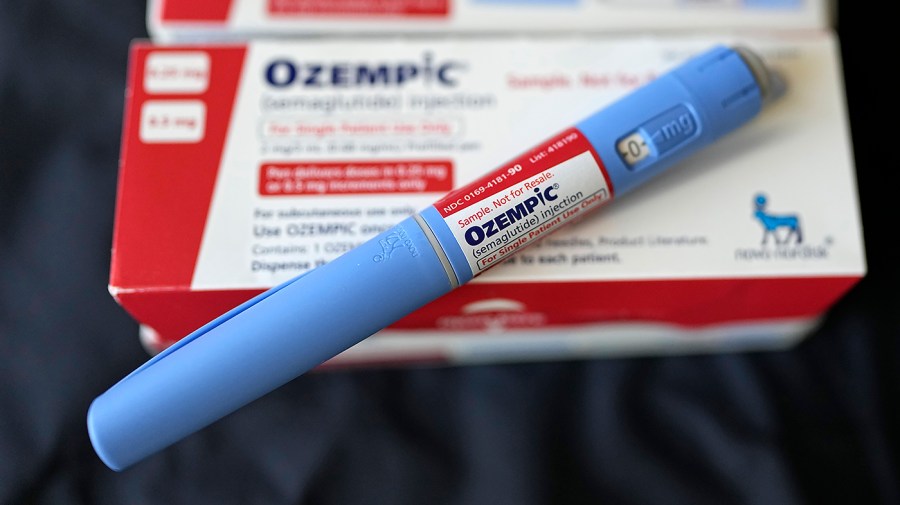Novo Nordisk wants the Food and Drug Administration (FDA) to prevent compounding pharmacies from manufacturing their own versions of the company’s popular weight loss drug Wegovy and diabetes treatment Ozempic, arguing the drugs are too complex for the pharmacies to make safely.
Compounded anti-obesity drugs are sold at vastly lower prices than the branded versions and can give patients needed access to drugs that are in shortage.
Ozempic and Wegovy cost about $1,000 per month without discounts, and many insurance plans don’t widely cover the drugs for weight loss purposes. Semaglutide, the active ingredient in both, has been in shortage for more than two years.
But Novo Nordisk asked the FDA to add semaglutide to a list of “complex medications” that compounders are not allowed to make, regardless of shortages, pointing to potential safety risks.
“These drugs are inherently complex to compound safely, and the risks they pose to patient safety far outweigh any benefits,” the drugmaker said in a statement.
The FDA has not yet made a final decision.
Novo Nordisk said its request “is a significant step towards keeping people safe from unapproved and potentially harmful versions of knock-off ‘semaglutide’ drugs” and that the company wants to “ensure that patients receive only FDA-approved, safe, and effective semaglutide products.”
It cited several risks with compounded versions of semaglutide, including unknown impurities, incorrect dosage strengths and instances where a compounded product contained no semaglutide at all.
The Danish company’s request comes as it works to ramp up supply in the U.S. in response to skyrocketing demand. It also represents an escalation of efforts to crack down on clinics, compounding pharmacies and other manufacturers selling what it alleges are unsafe knockoff versions of semaglutide.
Compounded versions of semaglutide are not approved by the FDA, and the agency earlier this month said they can pose a risk to patients.
The Alliance for Pharmacy Compounding was quick to note that adverse events reported by patients taking compounded versions of the drug “are remarkably similar to those reported by patients taking the FDA-approved version.”
In a statement, the group’s CEO Scott Brunner asked why, if Novo Nordisk was so concerend about patient safety, it took the company two and a half years into the shortage to nominate semaglutide to FDA’s complex medication lists.
“To me, this looks more like desperation and an attempt by Novo to protect its revenue stream than a serious scientific argument,” Brunner said.
“Novo’s ridiculous claims to the contrary, compounding pharmacies are dispensing compounded versions of those life-enhancing drugs to hundreds of thousands of patients. I get that Novo doesn’t like it, but the answer is not to restrict patient access … it’s for [Novo] to fix its supply chain,” he added.

